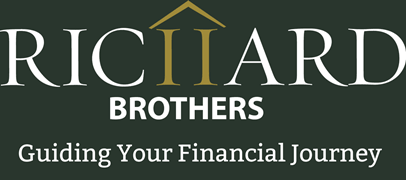 You probably know that estate planning is essential to ensure that your assets are managed prudently during your life and distributed according to your wishes after death.
You probably know that estate planning is essential to ensure that your assets are managed prudently during your life and distributed according to your wishes after death.
But you might not realize that financial planning for your estate is also a smart way to achieve philanthropic goals, such as supporting organizations and foundations that enhance your community.
There are many different ways for people to give to their communities, including:
-
Volunteering time with nonprofit organizations or community foundations
-
Making direct gifts during their lifetime to nonprofits or community programs
-
Committing to donate to donor-advised funds or private foundations, and disperse the funds over time as the person sees fit
-
Giving to charitable trusts that benefit the donor during his or her lifetime and help charities at the time of their death
-
Making gifts at the time of their deaths through a last will and testament or revocable living trust
If you’re interested in leaving a legacy, it’s a good idea to work with experienced estate planning professionals who help you clarify your philanthropic goals and find creative ways to achieve them, either during your lifetime or after your death.
When managed carefully as part of financial planning for your estate, giving to your community offers a variety of benefits, from tax advantages to the personal rewards of supporting an organization or a cause that’s close to your heart.
For example, many people choose to set up what’s called a charitable remainder trust. It’s a highly tax-efficient way to donate securities or property whose value has appreciated significantly over time. This helps you avoid the high capital gains taxes that would otherwise be due if you sold the stock or property outright and donated the cash.
Certain types of charitable remainder trusts allow you to receive lifetime income payments from the trust in accordance with IRS rules, with the remainder being paid to a charity at the time of your death. Some people leave the choice of charity for their kids to decide, while others choose an organization and let them know that the trust has been set up.
Donating highly appreciated stock or property to a charitable trust may allow you to reduce your income tax liability, potentially freeing up cash flow!
However, there is a trade-off to this solution in that you relinquish some control over the asset you’re donating in order to gain the benefits of this tax-efficient giving. You can’t have both. Some people are fine with giving up some control, while others prefer to be able to do what they want with that asset, in case of some unforeseen financial need. If you’re not sure where you fall on that continuum, it’s helpful to review your situation with a financial advisor.
People often talk about wanting to “give back” to their community because they feel they’ve received something of value from it. While that’s a worthy goal, it’s not the only reason to make charitable gifts.
As motivational speaker and High Point University president Nido Qubein notes in his book Uncommon Sense, “It’s better to give than to give back.” Whether you’re volunteering your time or setting up a charitable trust, it’s great to give because you’re passionate about a cause — or simply because you can.
To secure your family’s financial future, you need a smart strategy and plans to mitigate potential risks. Download our Checklist For Securing Your Family’s Financial Future.
Richard Brothers Financial Advisors



